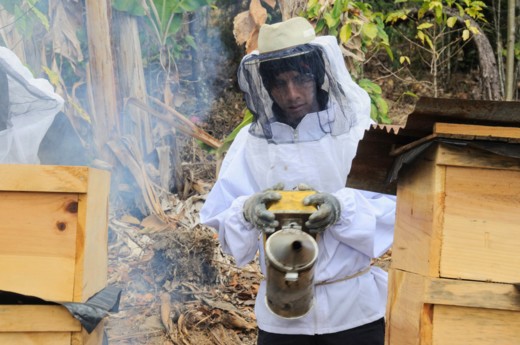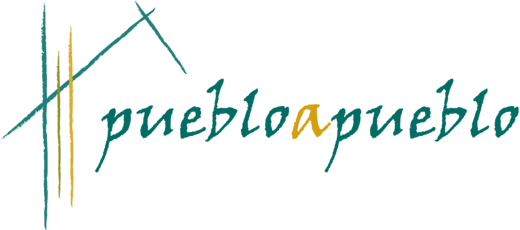
Pueblo a Pueblo
By Administrator
 Pueblo a Pueblo strives to develop innovative, data-driven, and culturally appropriate programs to target locally defined problems in the Lake Atitlán region in the Western Highlands
Pueblo a Pueblo strives to develop innovative, data-driven, and culturally appropriate programs to target locally defined problems in the Lake Atitlán region in the Western Highlands
of Guatemala. This year the Compassionate Impact Grant will support the Beekeeping project within Pueblo a Pueblo’s Sustainable Livelihoods program, targeting coffee farming communities with a focus on women and indigenous Mayan farmers. Coffee farming does not provide a stable income and is highly susceptible to the effects of climate change. For these coffee farmers, adding beekeeping helps provide year-round stable income though honey sales, and the bees help increase coffee income by increasing the coffee yield. Beekeeping has been a Mayan enterprise for centuries, making it a culturally appropriate addition for indigenous coffee farmers in the region.
In the Lake Atitlán region, over 80% of the population lives in poverty, of which 40% face extreme poverty and live on less than $2 USD a day. Among individuals who self-identify as indigenous in Guatemala, 79% live in poverty (1.7 times higher than the general population). Coffee farmers are subject to volatile market prices, insufficient income for proper nutrition until harvest months, and are particularly vulnerable to the effects of climate change.
Pueblo a Pueblo has designed the program to be sustainable without their support after three years. Pueblo a Pueblo installs locally-constructed beehive frames then collaborates with the group to expand their apiary and to gradually transfer ownership to them. The project model features in-depth workshops on all phases of apiary management, financial literacy, group dynamics, business skills, and marketing. In the third year of the project cycle and beyond, Pueblo a Pueblo remains a source of logistical support for the groups. Data from the
most recent Beekeeping group to finish its three-year project cycle suggests a 44 percent increase in participants’ incomes from baseline data.
Pueblo a Pueblo’s values and project design align with FBB’s very closely. Their project is designed to counteract the effects of colonialism with a culturally appropriate intervention that targets women and indigenous farmers who are living in poverty. Their project is holistic and designed from the beginning with community-led interventions and for control to be completely transferred to the beneficiaries after three years. Their initial program design is based on international evidence of the effectiveness of beekeeping as an effective intervention to address poverty and climate change. Pueblo a Pueblo’s own data has shown significant income increases for the participants that have already completed the three year program cycle. FBB is proud to support this innovative, effective, sustainable, culturally-effective project!
